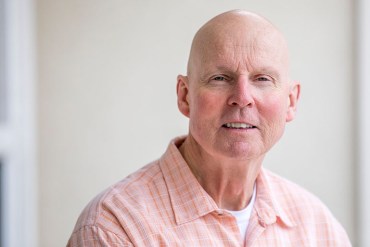Severe Shortage Of Home Health Workers Robs Thousands Of Proper Care
A critical shortage of home health care workers across the U.S. is denying care for senior citizens and people with disabilities.
How To Help Alzheimer’s Patients Enjoy Life, Not Just ‘Fade Away’
Research shows that people with dementia can benefit significantly from efforts to ease communication, improve overall health and other key measures.
Sen. Grassley Demands Scrutiny Of Medicare Advantage Plans
The powerful chairman of the Senate Judiciary Committee wants the Centers for Medicare and Medicaid Services to explain $125 million in overcharges by insurers.
Coming Full Circle, Doulas Cradle The Dying
Traditionally there for mothers giving birth, a doula’s role has evolved to comforting seniors facing death.
Dos dietas científicas mantienen sano al cerebro y ayudan a prevenir el Alzheimer
La Canadian Brain Health Food Guide y la dieta MIND, creadas en ámbitos académicos, han demostrado ser eficaces para prevenir el deterioro cerebral vinculado al desarrollo del Alzheimer.
To Help Ward Off Alzheimer’s, Think Before You Eat
Good nutrition has been linked to a boost in senior citizens’ cognitive skills.
Justice Department Joins Lawsuit Alleging Massive Medicare Fraud By UnitedHealth
The Department of Justice is joining a whistleblower lawsuit in a fraud case against UnitedHealth in which damages could top $1 billion.
Want To Live Past 100? Centenarians Share Secrets Of Knee Bends And Nips Of Scotch
The ranks of 100-year-olds doubles every eight years, but researchers still puzzle over the ingredients of longevity.
Video Help Is On Way For Family Caregivers Who Must Draw Blood Or Give Injections
Medical experts around the country are rolling out instructional videos for family caregivers who need help with challenging medical tasks.
Sticker Shock Forces Thousands Of Cancer Patients To Skip Drugs, Skimp On Treatment
A growing number of patients fail to fill prescriptions because the cost of cancer drugs is too high.
By Law, Hospitals Now Must Tell Medicare Patients When Care Is ‘Observation’ Only
Not being officially admitted — a status known as observation care — can have financial consequences for beneficiaries, and patients had often complained they were not informed.
A Playbook For Managing Problems In The Last Chapter Of Your Life
Many people age 75 or older can take steps to avoid a crisis in the remaining years of their lives.
Dentistry Advocates Aim To Fill Medicare Gaps
Brushing aside a political climate that favors federal cuts in health care spending, advocates for oral health are pushing to expand Medicare to provide America’s elderly with dental benefits.
For Some Hospice Patients, A 911 Call Saves A Trip To The ER
Hospice groups are teaming up with specially trained paramedics to deal with common problems that worried patients or families incorrectly think need hospital care.
Geriatricians Can Help Aging Patients Navigate Multiple Ailments
Aging adults with complex needs can get special assistance from doctors trained as geriatricians.
GOP Fix To Insurance Markets Could Spike Premiums For Older Customers
As Republicans consider how to bring down costs for younger people, lawmakers may relax or eliminate the restrictions on how much more insurers can charge older consumers.
ER Visits Linked To Falls Spike Among California Seniors
State data show a rise of nearly 40 percent in fall-related visits from 2010 to 2015, a period in which the elderly population grew about 21 percent.
Dozens Of New Cancer Drugs Do Little To Improve Survival, Frustrating Patients
The FDA has approved dozens of new cancer medications in recent years, but few offer the benefits that patients seek.
New Federal Rules Will Require Home Health Agencies To Do Much More For Patients
The first overhaul of federal regulations in almost 30 years for home health care agencies will require them to be much more responsive to what aging patients and their caregivers need or want.
Trying To Solve The Alzheimer’s Puzzle
Alzheimer’s researchers hold onto hope after another promising trial ends in disappointment.

























